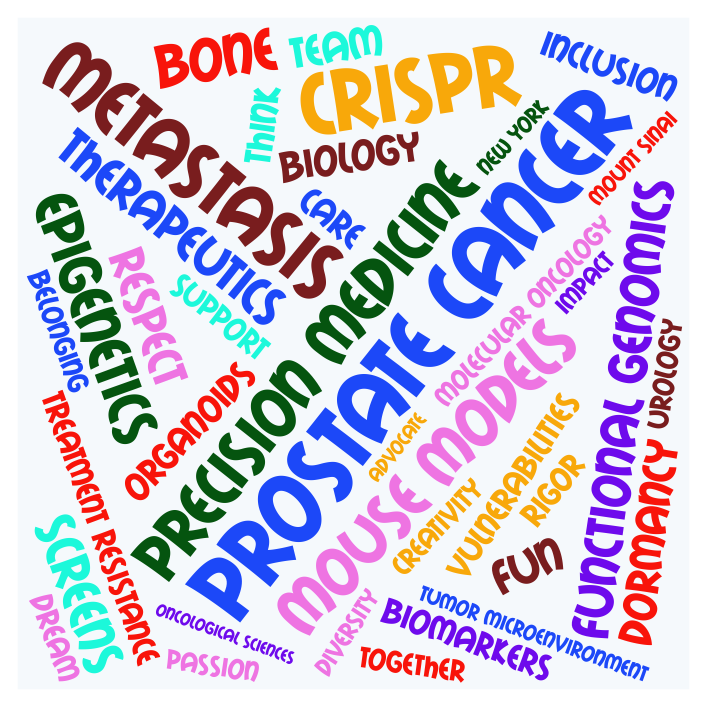Cancer progresses from a small number of cells to larger tumors that compromise the normal function of a tissue within an organism. These tumors can also spread to tissues different from where they first originated, in a complex process known as metastasis. Metastasis is responsible for the vast majority of deaths due to cancer. In the particular case of prostate cancer, tumors that are confined to the prostate are not lethal and therefore understanding how they can become metastatic is of particular clinical relevance in order to make an impact on patient survival.
We study the molecular mechanisms of how tumors become metastatic with the goal of developing new therapies based on this knowledge.
Although great progress has been made in recent years, metastatic prostate cancer remains uncurable. The mainstay of prostate cancer therapy is blocking the androgen signaling axis through androgen deprivation therapy. Eventually cancer may recur, most frequently with metastasis and this stage is known as castrate-resistant prostate cancer or mCRPC.
We study the molecular mechanisms of how tumors become mCRPC with the goal of or making them responsive to this or other treatments.
Thanks to the efforts of many researchers and clinicians, we now know a lot about the molecular alterations that are present in prostate and other cancers. What we still do not completely understand is what do these alterations mean for the behavior of a tumor (“functional genomics”), which of these alterations are crucial for tumors to grow or survive or which can represent vulnerabilities that we can exploit to develop new therapies. New technologies and models now allow us to start answering these questions.
We therefore study how genetic and epigenetic alterations impact tumor development, progression and metastasis using new technologies and models that account for tumors growing in a whole organism and for the influence of their environment.
Actively ongoing projects include:
Functional Identification of Therapeutic Vulnerabilities in mCRPC
We use unbiased, in vivo and genome-wide CRISPR screening approaches to indentify therapeutic vulnerabilities of the most aggressive, currently incurable prostate tumors.
Epigenetic drivers of Prostate Cancer Bone Metastasis
We study how particular epigenetic modifiers can impact prostate cancer development and progression to bone metastasis, as well as how they might influence resistance to standard of care and experimental therapies.

